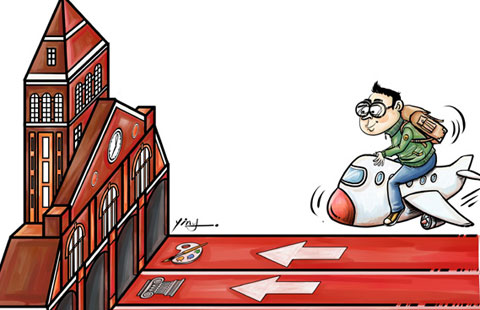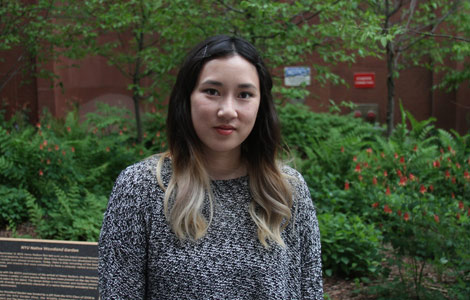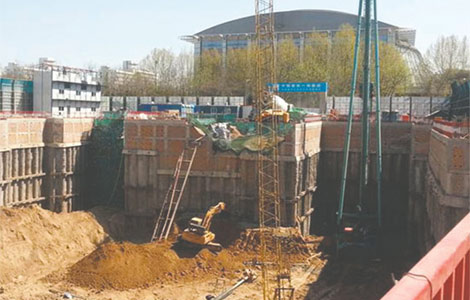Hidden dangers, ruined lives
Updated: 2014-05-15 08:02
By He Na and Han Junhong (China Daily)
|
||||||||
A life ruined
Guan Yimin is fully aware of the dangers posed by armaments discarded by the Japanese in 1945. He lost his left hand, the forefinger of the right, and the sight in one eye at age 11, when a shell with which he was playing exploded. "My classmates found several small shells buried in the soil and gave two to me. I played with one of them and it went off. I lost consciousness, and when I awoke, I was in the hospital," said the 52-year-old from Daqiaoxi village in Dunhua city, Jilin province.
The injuries make it difficult for Guan to perform even the simplest tasks. When the temperature dropped dramatically in early May, he went out to collect firewood to heat the small house he shares with his mother. After two hours, his wheelbarrow was still half-empty, even though there was plenty of wood lying on the ground, so a couple of neighbors came to Guan's assistance by collecting wood and helping him push his barrow back home.
The childhood accident ruined Guan's life, according to his elderly mother. "My son used to be a good student, but he quit school after he was disabled. With no education and lacking the ability to work, no one wanted to marry him. His father died many years ago, so I'm really worried about how he will cope after I pass away," she said.
Guan said: "It's my fault that I played with that dangerous 'toy', but I was just a kid, how could I have known? If the weapons hadn't been discarded, my life wouldn't be so hard."
Further potential for injury and damage
Residents of Haerba-Ling, a small village close to a military base in the Haerba Mountains of Jilin province where chemical weapons discarded by Japanese forces are decommissioned and buried, expressed deep concern about the local environment and their livelihoods. With just 470 residents, it's one of the poorest villages in Dunhua city.
Zhang Jiaxiang, 50, said the base has three deep pits, with stairs made out of empty shell boxes leading to the bottom. "There are countless shells of different shapes and sizes. At first, there was just a board warning people not to enter, but nowadays barbed wire fences encircle the site, and soldiers are on guard 24 hours a day. They don't allow anyone to enter," he said.
Ma Changqing, the village accountant, said people are still worried about the discarded shells, but a new concern has emerged.
"We are finding far fewer shells than before, but now we have a more pressing problem. The site is close to the source of the town's drinking water. We often see people using equipment to test the soil, water and air, but they never tell us the results of the tests. Many of the villagers have high blood pressure, and the incidence of cancer has risen sharply. Doctors from the local hospital told me that most of the residents have small pimples on the insides of their eyelids. For the sake of our health, we strongly urge that the government relocate the entire village to a safer area," he said.
Most Viewed
Editor's Picks

|

|

|

|

|

|
Today's Top News
Boeing order for discount airline shows low-cost travel increasing
US-China 'Dialogue' will include S. China Sea
PLA chief tours US carrier
Houston may see 55,000 new jobs from energy boom
China accuses former GSK head of bribing doctors
Scholarship gets new partner to help find students
Former policemen convicted of forced confession
Li: More common interests with US
US Weekly

|

|















